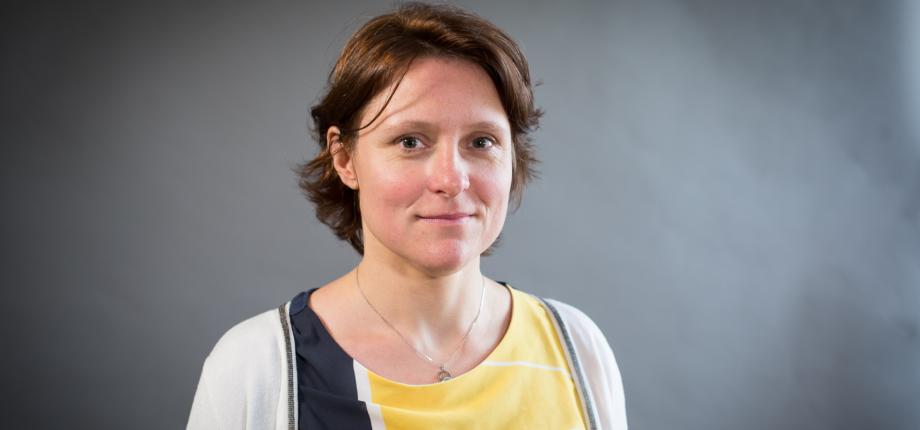At the limits of information systems

From just a few bits to several gigabits exchanged per second, our communications systems have seen a tremendous increase in speed in less than a century. But while we're used to speaking in "gigas" (the Greek prefix for billion) with our current phones and computers, these values are not infinitely extendable. It is precisely the aim of Michèle Wigger's research in information theory to probe the limits of these performances. "It's not just telecommunications that deals with information, but also systems used to detect vibrations or obstacles, to estimate temperatures or positions, or to compress and reduce the size of images and other data, and so on". Whether it's for sensor arrays that monitor avalanches or for robots working in industrial warehouses (two examples of the "Internet of Things") or radar systems for vehicles, the examples are numerous.
"Once a system has been established, for example, for telecommunications, the number of antennas, their power, the number of users who can communicate simultaneously, the environmental interference, etc., what is the best data rate achievable before the probability of error is too high, which is harmful?" asks the researcher.
Mathematical techniques
To answer such questions, Michèle Wigger doesn't pick apart the chips in smartphones or other electronic systems. Instead, as a theoretician, she works with equations and theorems. In 1948, Claude Shannon, one of the founders of information theory, published a major paper in which he described information as a measurable quantity and formulated the maximum rate that can be transmitted by a channel (with a few conditions). "It's a nice formula, with only a few symbols. An elegant answer to a complicated question", says the researcher. “More than 75 years later, there are still many open questions in the field, especially with distributed and multi-user systems. The questions are becoming even more complicated, and the answers won't be as short!"
Tackling these complex problems of fundamental limits requires two distinct components: showing that a system can indeed achieve a given performance and showing that this performance cannot be exceeded by any a smart system design. To this end, the researcher has participated in the development of a proof technique called "change of measure converse proof", which she intends to improve thanks to this ERC funding for her project FLoSS (Fundamental Limits of Sensing Systems). She also intends to apply her theoretical expertise to concrete applications.
Quantum sensors on the horizon
Among these applications are integrated sensing and communication systems. Autonomous vehicles, for example, need both a radar to estimate the position and speed of other vehicles, and a communication system. In both cases, information must be sent via an electromagnetic wave. Could we make a 2-in-1 system? The optimum waveform for this integrated system will not necessarily be the same as the optimum waveform for one of the systems taken separately. " Trade-offs have to be made, and my job is to characterize them mathematically," sums up the researcher. Can systems that achieve this optimum then be manufactured? "It's a hope, and it's not always obvious. It was only in the 1990s that systems reaching Claude Shannon's theoretical predictions were designed!"
Michèle Wigger also plans to study quantum sensors, whose properties - highly sensitive to variations in environmental parameters - make them extremely accurate detection systems. "Very little work has been done to date on the limits of these systems, and I still don't know how complicated it will be!" That's what fundamental research is all about: exploring the limits of knowledge.
About:
Michèle Wigger is a professor of information theory at the Laboratoire Traitement et Communication de l'Information at Telecom Paris. She received the M.Sc. degree in electrical engineering, with distinction, and the Ph.D. degree in electrical engineering both from ETH Zurich in 2003 and 2008, respectively. She was awarded two ETH Medals, one for her Master Thesis and one for her PhD Thesis. In 2009, she was a post-doctoral fellow at the University of California, San Diego, USA, before joining Telecom Paris, where she has been a full professor since 2018. She has held visiting professor appointments at the Technion-Israel Institute of Technology and ETH Zurich. Dr. Wigger has been an associate editor for the IEEE Transactions on Information Theory and the IEEE Communications Letters, and has also served as a co-lead guest editor for the IEEE Journal on Selected Areas in Information Theory for the special issue on sensing. She has served as a TPC member for numerous conferences in information theory and communications and on a variety of committees of the IEEE Information Theory Society, including on the Board of Governors. Funding accomplishments include an Emergences Grant from the city of Paris, a Discruptive-ICT grant from Huawei, a Collaborative Project Grant from the French Funding Agency ANR, and both an ERC Starting Grant and an ERC Consolidator Grant.
*LTCI: a research lab Télécom Paris, Institut Polytechnique de Paris, 91120 Palaiseau, France













